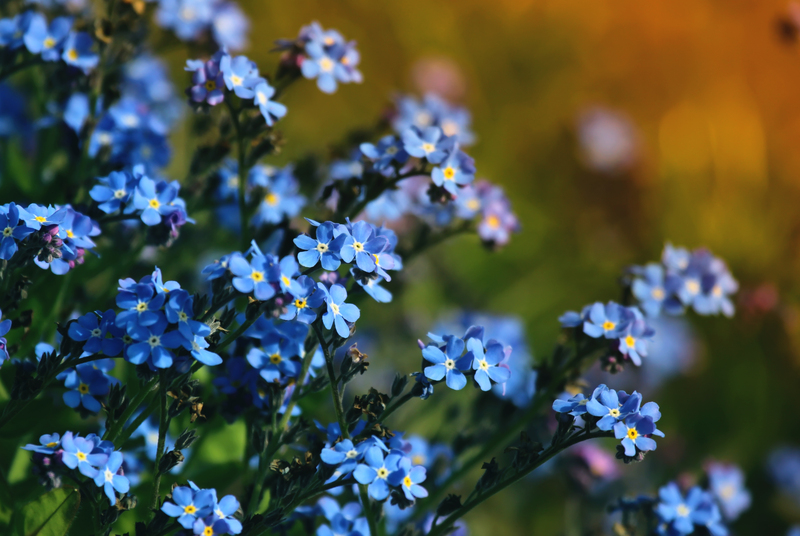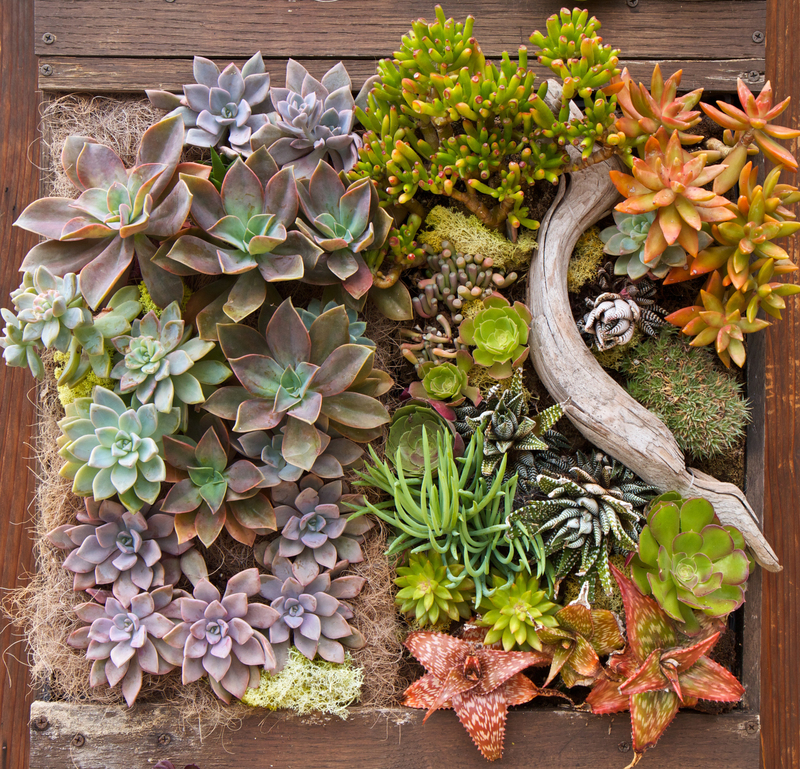Beginner-Friendly: 9 Essential Gardening Guidelines
Posted on 18/06/2025
Beginner-Friendly: 9 Essential Gardening Guidelines
Gardening is one of the most fulfilling and rewarding hobbies you can pick up. With the right knowledge and attitude, even beginners with no prior experience can turn a patch of land, balcony, or a set of containers into a lush, vibrant garden. This comprehensive guide highlights 9 essential gardening guidelines for beginners--your step-by-step pathway to a thriving, healthy, and beautiful garden space.

Why Gardening Is Great for Beginners
Before we dive into the best garden tips for beginners, it's worth noting that gardening is not only healthy for your body but also soothing for your mind. Whether you want to grow flowers, vegetables, or herbs, beginner-friendly gardening techniques make it accessible for everyone.
- Physical activity: Gardening is terrific moderate exercise.
- Mental health boost: Studies show gardening decreases stress and anxiety.
- Saves money: Home-grown produce costs less than store-bought.
- Environmental impact: A garden supports bees, butterflies, and local wildlife.
Now, let's delve into the crucial beginner gardening rules you should follow for guaranteed success.
1. Start Small and Set Realistic Goals
One of the most important gardening guidelines for novices is to start with a manageable area. Many first-timers get enthusiastic and plant too much, only to become overwhelmed. It's better to have a small, well-tended patch than a sprawling, neglected garden.
- Begin with a garden bed of about 4x8 feet or a few large containers.
- Pick 2-3 types of plants or vegetables to focus on.
- Grow gradually as your confidence increases.
This approach helps avoid burnout and lets you develop basic gardening skills at your own pace.
2. Understand Your Garden's Location and Sunlight
A key gardening tip for beginners is to analyze your garden's position. Plants have different sunlight requirements, and their performance depends on choosing the right spot.
- Full sun: At least 6-8 hours of direct sunlight per day for vegetables and most annuals.
- Partial shade: 3-6 hours of sunlight; ideal for leafy greens and some perennials.
- Full shade: Less than 3 hours of direct light; best for shade-loving plants like ferns and hostas.
Observe your space throughout the day and note where the sun falls. This beginner-friendly gardening guideline ensures you select plants suited to your garden's conditions for maximum success.
3. Know Your Soil and Prepare It Properly
Even the best gardeners can't grow healthy plants in poor soil. Soil preparation is a fundamental step in any beginner gardening guide.
- Test your soil: Home kits or local extension services can tell you about pH, nutrients, and soil type.
- Amend your soil: Add compost, aged manure, or organic matter to improve fertility and structure.
- For containers, use high-quality potting mix instead of garden soil.
Well-prepared soil leads to stronger roots, healthier growth, and abundant harvests. Never skip this critical gardening guideline.
4. Select the Right Plants for Your Region
Choosing the right plants is among the most valuable gardening for beginners tips. Not every plant will thrive in every locale. Consider:
- Climate zone: Check your USDA or hardiness zone to match plants to your weather conditions.
- Seasonal timing: Some plants thrive in cool weather (lettuce, spinach) while others need warmth (tomatoes, peppers).
- Read plant labels or seed packets for information about sunlight, water, and spacing needs.
Native and regional plants are often easier to grow and more resilient for those starting out.
5. Water Wisely and Consistently
Smart watering is another cardinal rule in any list of essential garden tips for novices. Both over-watering and under-watering can lead to problems. Here's how to get it right:
- Water deeply: Water at the base of plants to encourage roots to grow downward.
- Timing: Early mornings are best to avoid evaporation and fungal disease.
- Check soil moisture by sticking your finger in--the top inch should be dry before watering again.
- Use mulch to retain soil moisture and reduce frequency.
Consistent soil moisture helps garden plants for beginners flourish and develop strong defenses against pests and diseases.
6. Feed Your Plants for Robust Growth
Just like people, plants need the right nutrients to thrive. Fertilizing correctly is one of the indispensable beginner gardener tips.
- Organic options: Compost, worm castings, or natural fertilizers release nutrients slowly and improve soil health.
- Commercial fertilizers: Follow directions carefully--overfeeding can harm plants and pollute waterways.
- Some plants like beans and peas need less fertilizer as they fix their own nitrogen.
Fertilize at the right times (usually during growth spurts) and always water after feeding to avoid root burn.
7. Mulch to Protect and Enrich Your Garden
Mulching is a beginner-friendly gardening technique that delivers major benefits with minimal effort. It involves spreading materials like shredded bark, straw, or leaves around your plants.
- Reduces weeds: Blocks sunlight, suppressing unwanted growth.
- Retains moisture: Less evaporation means less watering needed.
- Moderates soil temperature: Keeps roots cool in summer and warm in winter.
- Organic mulch breaks down to enrich soil over time.
Apply 2-3 inches of mulch, being careful not to press it against stems. This simple act supports strong, low-maintenance gardens.
8. Actively Monitor for Pests and Diseases
All gardens encounter pests and diseases eventually, but proactive care helps prevent disaster. Beginner gardeners should regularly inspect plants and act quickly:
- Check under leaves for insects or discoloration.
- Remove diseased or chewed leaves by hand.
- Use physical barriers like netting, or introduce beneficial insects (ladybugs, lacewings).
- Avoid broad-spectrum chemicals, especially early on--organic controls are safer for people and pollinators.
Knowledge and early action are your best preventive methods, making this rule a top novice gardener guideline.
9. Be Patient, Observe, and Learn
Perhaps the most important beginner gardening advice is to practice patience. Gardens take time to establish, and mistakes are simply part of the learning process.
- Keep notes: Track what you plant, where, and how it performs each season.
- Stay curious: Read, ask other gardeners, or watch tutorials to build your skills.
- Celebrate small victories and learn from shortcomings. Every season brings new lessons!
The more you interact with your garden, the more you'll understand its rhythms. Patience and observation transform a beginner into a skilled, confident gardener.
Bonus Tips: Beginner-Friendly Gardening Suggestions
- Label your plants: Use waterproof tags to avoid confusion.
- Use easy-grow plants: Sunflowers, marigolds, radishes, and lettuce are forgiving options for new gardeners.
- Add pollinator-friendly flowers: Attract buzzing bees and beautiful butterflies for a lively garden.
- Don't be afraid to ask for help--local nurseries and garden clubs are brilliant resources.

Frequently Asked Questions: Beginner-Gardening Guidelines
What is the easiest vegetable for beginners to grow?
Radishes, lettuce, and green beans are some of the most forgiving and 'easy plants for new gardeners', requiring little care and producing quick results.
How do I know if my soil is healthy?
A healthy garden soil should drain well, have a crumbly texture, and support buds and worms. Test kits reveal pH and nutrient levels, and adding compost boosts fertility undoubtedly.
How often should I water my plants?
Frequency depends on the plant, soil, and climate, but a reliable beginner's rule is to water when the top inch of soil feels dry. Always water at the base, not overhead, to prevent fungal issues.
Can I garden if I only have a balcony?
Absolutely! Container gardening is perfect for those with limited space. Use large pots, good potting mix, and select container-friendly vegetables and flowers. Don't forget drainage!
Conclusion: Your Beginner Gardening Journey Begins!
It's never been easier to dive into gardening with these 9 essential beginner gardener guidelines. Remember, start small, know your environment, amend your soil, choose the right plants, water and fertilize appropriately, mulch, control pests naturally, and embrace the process with patience.
Every mistake is a lesson, and each new sprout is a triumph. With dedication and curiosity, your garden will soon burst with life. Whether you're growing herbs on your windowsill or planning a backyard oasis, these beginner-friendly gardening guidelines ensure long-term success, satisfaction, and joy.
Happy gardening! May your novice gardening journey bloom into a lifelong passion.
Latest Posts
Shaded Sanctuaries Celebrated with Evergreen Climbers
Experience the magic of container gardening
Creating Discovery Zones in a Child-Friendly Garden

